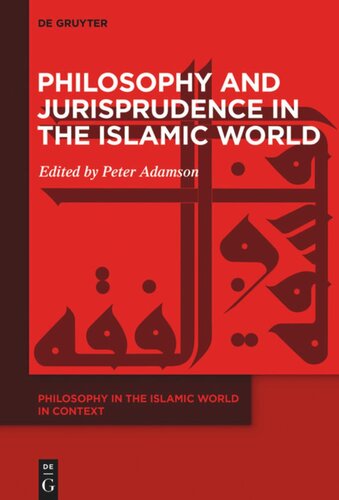

Most ebook files are in PDF format, so you can easily read them using various software such as Foxit Reader or directly on the Google Chrome browser.
Some ebook files are released by publishers in other formats such as .awz, .mobi, .epub, .fb2, etc. You may need to install specific software to read these formats on mobile/PC, such as Calibre.
Please read the tutorial at this link: https://ebookbell.com/faq
We offer FREE conversion to the popular formats you request; however, this may take some time. Therefore, right after payment, please email us, and we will try to provide the service as quickly as possible.
For some exceptional file formats or broken links (if any), please refrain from opening any disputes. Instead, email us first, and we will try to assist within a maximum of 6 hours.
EbookBell Team

0.0
0 reviewsNew Series
This book brings together the study of two great disciplines of the Islamic world: law and philosophy. In both sunni and shiite Islam, it became the norm for scholars to acquire a high level of expertise in the legal tradition. Thus some of the greatest names in the history of Aristotelianism were trained jurists, like Averroes, or commented on the status and nature of law, like al-Fārābī. While such authors sought to put law in its place relative to the philosophical disciplines, others criticized philosophy from a legal viewpoint, like al-Ghazālī and Ibn Taymiyya.
But this collection of papers does not only explore the relative standing of law and philosophy. It also looks at how philosophers, theologians, and jurists answered philosophical questions that arise from jurisprudence itself. What is the logical structure of a well-formed legal argument? What standard of certainty needs to be attained in passing down judgments, and how is that standard reached? What are the sources of valid legal judgment and what makes these sources authoritative? May a believer be excused on grounds of ignorance?
Together the contributions provide an unprecedented demonstration of the close connections between philosophy and law in Islamic society, while also highlighting the philosophical interest of texts normally studied only by legal historians.